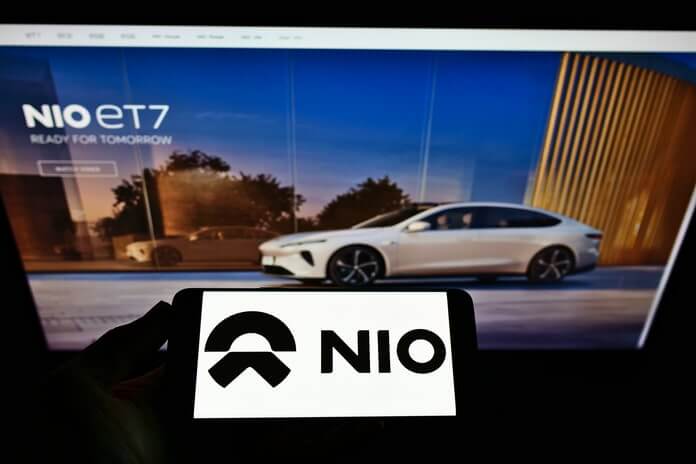In the third quarter, Nio (NYSE:NIO) outsold XPeng (XPEV) and Li Auto (LI), according to the Chinese startups’ reports released on Saturday. Early on Monday, EV and battery goliath BYD (BYDDF) announced record-breaking September and Q3 sales.
The Nio stock and its EV competitors did not change much on Monday. Nio gained ground Friday when the EV company started shipping the highly anticipated ET5, a Model 3 competitor, to customers in China.
Sales of new electric vehicles in September increased for Nio and Li Auto. Although XPeng just unveiled a new EV, bulk deliveries have not yet started. Following recent supply and demand-side obstacles, the triumvirate is seeking expansion.
Tesla (TSLA), the arch-enemy of the United States, revealed record global deliveries on Sunday, although those numbers were much below expectations.
Deliveries by Nio (Nio Stock)
In the third quarter, Nio (NYSE:NIO) delivered a record 31,607 automobiles, up 26.1% from Q2 and 29.3% from a year earlier. That was within its lower-middle 31,000-33,000 goal range. Nio shipped 10,878 electric vehicles in September, up 1.9% from August’s 10,677 and up 2.35% from a year earlier.
7,729 SUVs were delivered in September, including 1,895 of its ES7, which started to be delivered on August 28. Including 221 ET5s and 2,928 ET7s, Nio sold 3,149 sedans. While the ET5, a Model 3 competitor, had just started delivery on September 30, the luxurious ET7 started deliveries in the spring.
Nio owns three pre-owned SUVs as well. Nio anticipates record deliveries in every month of the fourth quarter thanks to the launch of three new models on its next-gen and an expansion into Europe.
Nio sold 25,059 EVs in Q2, less than XPeng and Li Auto. Shutdowns of Covid in China had a particularly negative impact on it.
In August, Nio outperformed Xpeng and Li Auto, delivering 10,677 EVs, an 82% increase from the same month last year.
After increasing 1.2% to 15.77 on Friday, Nio stock fell slightly on Monday. In the trading on Thursday, shares of Nio fell 10.1%. They are still 64% or more behind their 52-week high.
Deliveries by XPeng
In September, 8,468 electric vehicles were delivered, down from 9,578 in August and 18.7% from a year earlier, according to XPeng Motors. 184 G9 SUVs were included in that. Its new EV will begin receiving regular deliveries in late October.
Deliveries in Q3 totaled 29,570, up 15.2% from a year earlier but down 14.1% from Q2. XPeng had predicted 29,000 to 31,000 EV deliveries in Q3. In July, it sold 11,524 EVs, and in August, it sold 9,574.
XPeng outsold both Nio and Li Auto in Q2 with 34,422 EV sales.
Sales are now being driven by the more recent P7 and P5 electric cars, while the G3i and G3 SUVs are having trouble.
Early on Monday, XPEV shares declined by 2%.
On Friday, shares dropped 1.3%. The price of XPeng fell 9.2% on Thursday. The price of XPeng stock is still more than 78% below its 52-week high.
Auto Deliveries by Li
Li Auto recorded 11,531 deliveries in September. Li delivered 26,254 hybrid SUVs throughout the quarter. Just on September 26, Li Auto lowered its Q3 delivery forecast from 27,000 to 29,000 to 25,000. Li sold 10,422 EVs in July and 4,571 in August, implying deliveries of 10,507 in September.
Li Auto sold 28,687 electric vehicles in Q2, more than Xpeng but less than Nio.
Deliveries of the L9 SUV hybrid increased to 10,123 in its first full month. After demand for Li’s inaugural hybrid-electric SUV, the Li One, declined in August, the company will stop selling it in October.
As it loses Li One customers, Li is also accelerating the releases of the L7 and L8 models.
On September 28, the manufacturer declared that the 10,000th Li L9 had left the factory. According to Li Auto, the L9 will be one of the most popular full-size SUVs on the market.
Inching lower on Monday, shares fell 1.5% on Friday. On Thursday, Li stock dropped 6.1%. The stock price of Li Auto is 44% below its 52-week high.
Sales at BYD
After selling 174,915 new energy cars in August and 162,530 in July, BYD sold a record-breaking 201,259 in September. BYD sold 538,704 NEVs in Q3, up from 355,021 in Q2 and 194% more than a year prior.
All-electric, plug-in hybrid, and hydrogen fuel cell automobiles are examples of new energy vehicles.
BYD can likely surpass 1.5 million deliveries in 2022, maybe even getting close to 1.9 million, as it ramps up new models like the Seal, which debuted in late August. In 2023, 4 million are the goals.
BYD is also growing internationally. BYD unveiled three new all-electric vehicles for the Continent on Wednesday at a launch event in Europe. Deliveries will begin in the area in Q4. The Tang SUV is now sold on Norway’s pilot market. BYD has started shipping goods to Australia, New Zealand, and India. In the next months, it plans to expand into several more Asian countries.
BYD abandoned the production of solely gas- or diesel-powered vehicles in April in favor of exclusively creating hybrid and electric vehicles. BYD also intends to provide Tesla with EV batteries.
Over-the-counter shares of BYD decreased by close to 2% on Friday. On Thursday, they dropped 6.6%, hitting multi-month lows. BYDDF stock is down 43% from its highs.
EV Sales in China
August saw a twofold increase in new energy vehicle sales in China, continuing a strong 2022 trend. However, Nio and its rivals have occasionally had difficulties, notably Li Auto in August as a result of the outdated Li One model.
The exemption on NEV purchase tax, a kind of subsidy, was extended until the end of 2023, China officially declared on Monday. Despite a long-running rumor of an extension, it was supposed to expire this year.
Even though it is also having problems with demand, Li Auto cut its third-quarter EV delivery projection on the same day, blaming supply challenges.
Featured Image: Megapixl © Timonschneider















